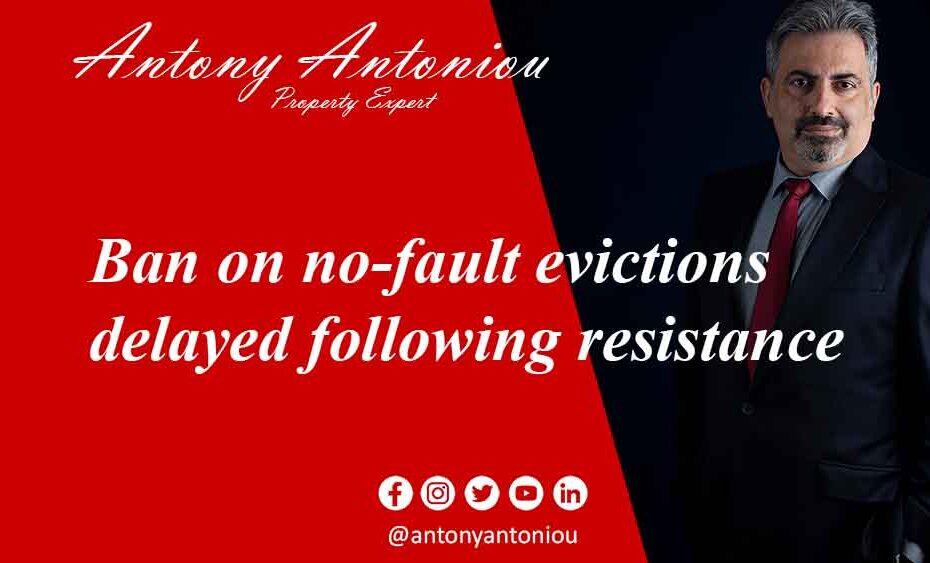Ban on no-fault evictions delayed following resistance
‘Huge’ number of politicians oppose the bill, which is at risk of missing critical deadline
Introduction:
The much-anticipated Renters Reform Bill, spearheaded by Michael Gove, may not see the light of day before the year’s end. With backbench MPs pushing against it and limited parliamentary sitting days, the bill’s future remains uncertain. In this article, we explore the reasons behind the delay and the potential implications for renters and landlords alike.
A Race Against Time:
As the clock ticks, the Department for Levelling Up, Housing, and Communities is racing to secure a “second reading” for the Renters Reform Bill. However, industry insiders suggest that Number 10 is less optimistic about the bill’s prospects. With the King’s Speech scheduled for November 7, the available sitting days are dwindling. If the second reading doesn’t occur before this critical date, the bill will be deferred to the following year.
Backbench Opposition:
A significant hurdle facing the Renters Reform Bill is the formidable opposition it encounters from a substantial number of backbench MPs. Described as “incredible resistance” by one MP, this opposition has been growing since the bill’s initial publication. The scale of dissent is substantial, with numerous politicians expressing their concerns.
Financial Interests at Play:
To add a layer of complexity to the situation, it’s noteworthy that some MPs have financial interests tied to the rental property market. According to research by the not-for-profit organization 38 Degrees, 87 MPs declared income from 167 English homes earning over £10,000 in rent this year, equating to approximately 20% of Conservative MPs. This financial connection has raised questions about potential conflicts of interest.
Landlords’ Apprehensions:
Landlords, in particular, have voiced their concerns regarding the Renters Reform Bill. At its core, the bill aims to abolish Section 21, commonly known as ‘no-fault’ evictions, and introduce rolling tenancies. Landlords fear that these changes could shift the balance of power too far in favor of non-paying tenants, leaving property owners with limited recourse in dealing with troublesome renters. This situation could potentially overburden the already strained court system.
Political Motivations:
With a general election looming on the horizon, Prime Minister Rishi Sunak is facing mounting pressure to fulfill his party’s manifesto promises. The Renters Reform Bill is one of these promises, and Conservatives hope that it could be a vote-winner among the Generation Rent demographic.
The Key Point: Abolishing Section 21:
A pivotal element of the bill is the elimination of Section 21 or ‘no-fault’ evictions. This change aims to make it more challenging for landlords to remove non-compliant tenants, such as those who refuse to pay rent or damage the property. While this is seen as a win for renters’ rights advocates, backbench Tory MPs are concerned that it could prompt a mass exodus of landlords from the market. Their fear is that this would result in a shortage of rental housing and potentially lead to a housing crisis.
Alternative Proposals:
Amid these debates, the National Residential Landlords Association has called for the establishment of a separate judicial court dedicated solely to housing matters. However, government sources have indicated that this proposal is not currently under consideration.
Conclusion:
In conclusion, the future of the Renters Reform Bill is marked by uncertainty and a complex interplay of political, financial, and housing market dynamics. As we approach critical deadlines, the bill’s fate remains a topic of intense speculation. Here are some key takeaways:
– **Timing is Everything**: The bill’s progress hinges on securing a second reading before the King’s Speech on November 7th. The limited number of sitting days poses a significant challenge to this timeline.
– **Backbench Opposition**: The bill faces formidable resistance from a substantial number of backbench MPs. This opposition has been steadily growing, adding to the bill’s uncertainty.
– **Financial Interests**: Some MPs have financial interests tied to the rental property market, raising concerns about potential conflicts of interest.
– **Landlords’ Concerns**: Landlords are apprehensive about the bill’s potential to shift power towards non-paying tenants, potentially overburdening the court system and causing landlords to leave the market.
– **Political Motivations**: With a general election looming, the bill’s fate is intertwined with the Conservative party’s manifesto commitments. It is seen as a potential vote-winner among the Generation Rent demographic.
– **Abolishing Section 21**: The bill’s core objective is to eliminate Section 21 or ‘no-fault’ evictions, a move applauded by renters’ rights advocates but met with resistance from backbench Tory MPs fearing a housing crisis.
– **Alternative Proposals**: Calls for a separate judicial court for housing matters have been made but currently appear unlikely to be adopted.
As the Renters Reform Bill’s future hangs in the balance, renters, landlords, and the entire UK housing market await its fate with bated breath. The coming weeks will be crucial in determining whether this bill becomes a landmark piece of legislation or remains mired in political and practical challenges. Number 10’s silence leaves us with more questions than answers, emphasizing the intrigue surrounding this critical legislation.

